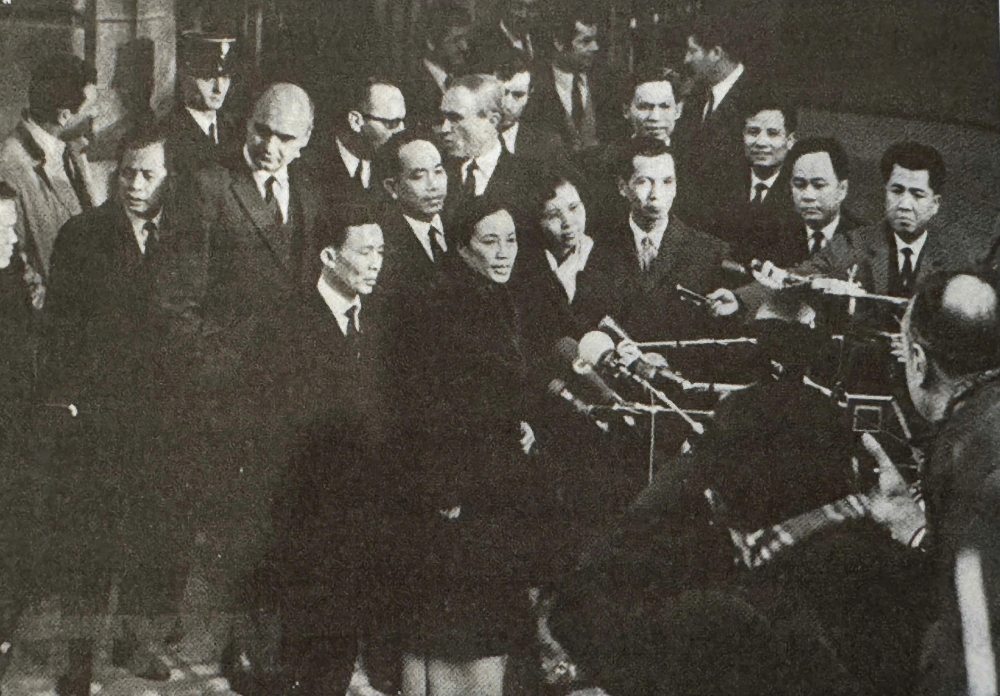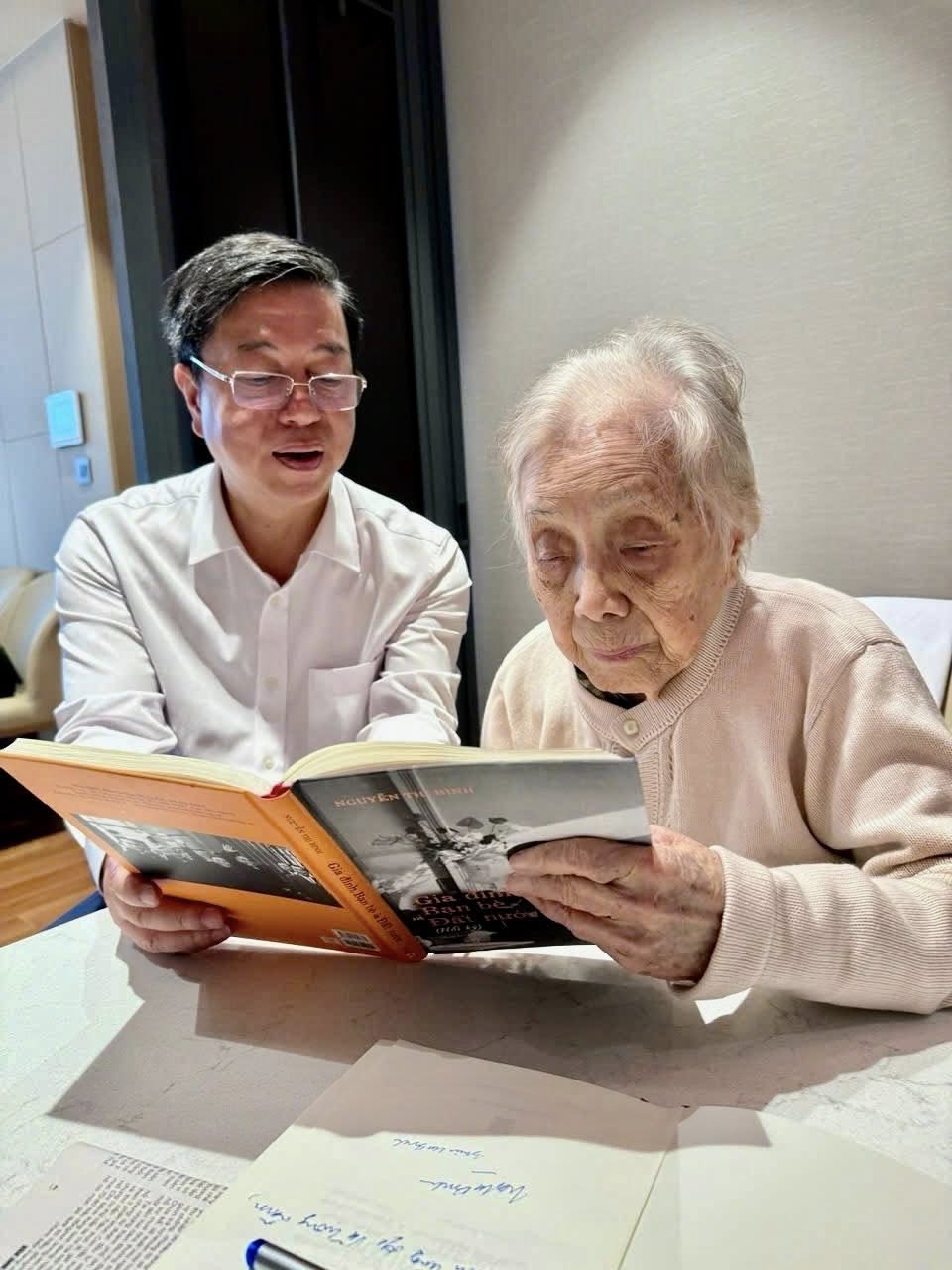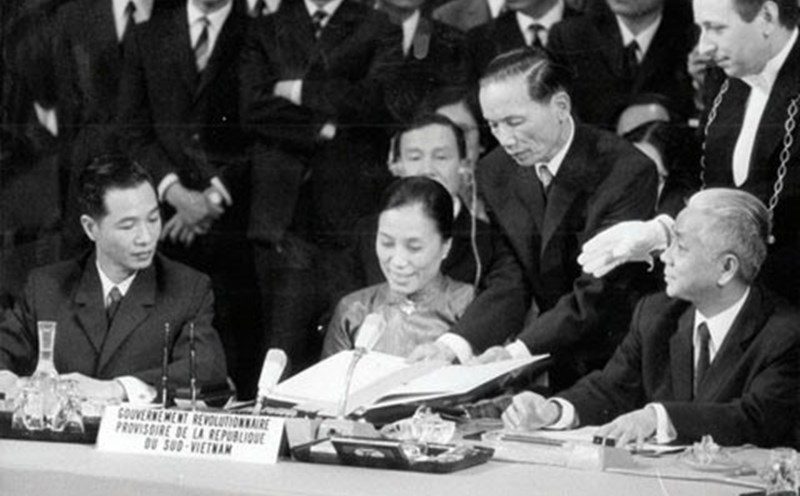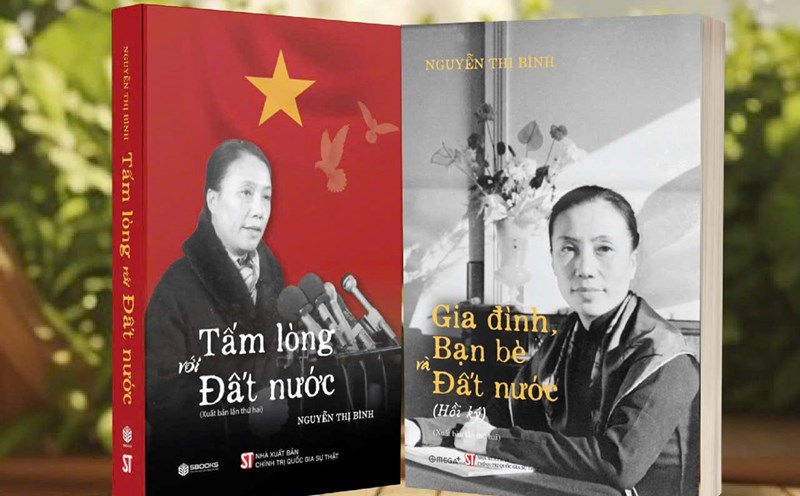Recently, the Ministry of Home Affairs announced the collection of public opinions on the submission and awarding of the title of Labor Hero to former member of the Party Central Committee, former Vice President, former Minister of Foreign Affairs of the Provisional Revolutionary Government of the Republic of Vietnam Nguyen Thi Binh.
According to experts and historians, it is very deserved to consider awarding the title of Labor Hero to former Vice President Nguyen Thi Binh.
Ms. Nguyen Thi Binh has made great contributions for more than half a century. For Ms. Nguyen Thi Binh, I think her career mark is too clear - historian Duong Trung Quoc emphasized.
Memories of the Paris negotiations
In the vibrant flow of modern Vietnamese history, Ms. Nguyen Thi Binh is one of the special figures who left a deep impression on the people as well as international friends.
The Truth National Political Publishing House has also just published the second volume of the book "Tam Long Voi Dat nuoc" by former Vice President Nguyen Thi Binh in 2025.
According to the Truth National Political Publishing House, the book is over 600 pages thick, collecting typical speeches, articles and interviews of Ms. Nguyen Thi Binh throughout the period of revolutionary activities and diplomatic struggles.

One of the highlights of the book is the memory of the Paris negotiations - an event marking a major turning point in Vietnam's revolutionary diplomacy. Ms. Nguyen Thi Binh played the role of Head of the negotiation delegation of the National Liberation Front of South Vietnam (1968) and the Provisional Revolutionary Government of the Republic of South Vietnam (from 1969 to 1973).
She was the only woman sitting at the negotiation table between the parties. She affirmed: In the history of world diplomacy, the Paris negotiations on Vietnam from May 1968 to January 1973 were the longest negotiations to end a war in the 20th century.
With more than 200 public meetings, 45 high-level private meetings, 500 press conferences and 1,000 interviews - the figures not only show the fierceness of the diplomatic front, but are also vivid evidence of the resilience, bravery and intelligence of the revolutionary diplomacy.
Not only did she excellently demonstrate her role as a diplomate, Ms. Nguyen Thi Binh also left a strong impression in the field of education and many other important tasks assigned by the Party and the State.

"My life is associated with the life of the nation"
One of the things that makes the book attractive is not the recitation of the achievements it has achieved, but the way it shares about the concerns, thoughts and even private moments placed in the context of the country's movement.
For example, in the book, she recalled the time in 1992 when she was nominated for the Vice President position, she herself refused because she was 65 years old and preparing to retire. But then, with a heart for the country, she wondered and replied: "What I do is for the country, not for any other purpose". That simple answer is the deepest proof of public ethics, of the sense of responsibility of revolutionary cadres, who have devoted their lives to serving without honor.
The memories in Ms. Nguyen Thi Binh's book do not have an artistic tone or individual honor, but are full of humanity and social responsibility. She wrote: "My life is connected to the life of the nation... I compare our country to a boat. Through many rapids, the boat of the Fatherland has gone out to sea, in front of which is a new horizon". The image of that boat is not only a metaphor for the revolutionary journey but also a metaphor for the belief in the future, in the ability to reach out to the world of a nation that has suffered many losses but always stood strongly.
The book also clearly shows the political style of Ms. Nguyen Thi Binh, a popular, simple style, but always sharp in thinking and steadfast in principles. All are raised not as slogans, but as experiences summarized from real life, including the sympathy and responsibility of a citizen for the common fate of the country.











